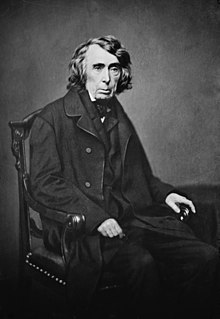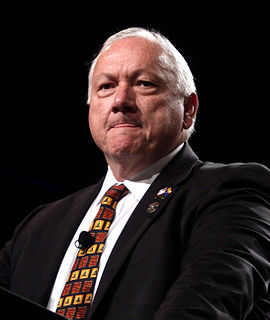A Quote by Roger B. Taney
Every state has an undoubted right to determine the status, or domestic and social condition, of the persons domiciled within its territory except insofar as the powers of the states in this respect are restrained, or duties and obligations imposed upon them, by the Constitution of the United States.
Related Quotes
The power of the state to impose restraints and burdens upon persons and property in conservation and promotion of the public health, good order, and prosperity is a power originally and always belonging to the states, not surrendered to them by the general government, nor directly restrained by the constitution of the United States, and essentially exclusive.
Resolved, That the General Assembly of Virginia, doth unequivocally express a firm resolution to maintain and defend the Constitution of the United States, and the Constitution of this State, against every aggression either foreign or domestic, and that they will support the Government of the United States in all measures warranted by the former.
There is not, in the Constitution, a syllable that implies that persons, born within the territorial limits of the United States, have allegiance imposed upon them on account of their birth in the country, or that they will be judged by any different rule, on the subject of treason, than persons of foreign birth.
When I was sworn in as a judge of the court of appeals, I took an oath. I put my hand on the Bible and I swore that I would administer justice without respect to persons, that I would do equal right to the poor and to the rich, and that I would carry out my duties under the Constitution and the laws of the United States.
The Constitution, when it says, "We, the people of the United States, in order to form a more perfect union, establish justice, ensure domestic tranquility, provide for the common defense, promote the general welfare, and secure the blessings of liberty to ourselves and our posterity, do ordain and establish this Constitution for the United States of America," meant just what it said without reference to color or condition, ad infinitum.
I consider the foundation of the Constitution as laid on this ground that 'all powers not delegated to the United States, by the Constitution, nor prohibited by it to the states, are reserved to the states or to the people.' To take a single step beyond the boundaries thus specially drawn around the powers of Congress, is to take possession of a boundless field of power not longer susceptible of any definition.
The sovereignty of the States is the language of the Confederacy and not the language of the Constitution. The latter contains the emphatic words. This Constitution and the laws of the United States which shall be made in pursuance thereof and all treaties made or which shall be made under the authority of the United States, shall be the supreme law of the land and the judges in every State shall be bound thereby, anything in the constitution or laws of any State to the contrary notwithstanding
And by virtue of the power, and for the purpose aforesaid, I do order and declare that all persons held as slaves within said designated States, and parts of States, are, and henceforward shall be free; and that the Executive government of the United States, including the military and naval authorities thereof, will recognize and maintain the freedom of said persons.
The Constitution is not a law, but it empowers the people to make laws... The Constitution tells us what shall not be a lawful tender... The legislature has ceded up to us the privilege of enacting such laws as are not inconsistent with the Constitution of the United States... The different states, and even Congress itself, have passed many laws diametrically contrary to the Constitution of the United States.
The Mayor, Aldermen and Councilors of the City of Nauvoo, IL, before entering upon the duties of their office, shall take and subscribe an oath or affirmation that they will support the Constitution of the United States, and of this State and that they will well and truly perform the duties of their offices to the best of their skill and abilities.




























